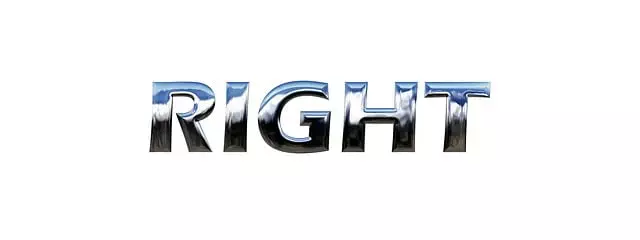Understanding your business needs is crucial for choosing the right business insurance. This involves a thorough risk assessment of physical assets, intellectual property, and potential liabilities like cyberattacks or industry-specific risks. Key policy categories include liability, property, workers' compensation, business interruption, and professional liability. A customized approach based on industry regulations and historical claims data ensures comprehensive protection. When selecting coverage, consider insurer reputation, customer support, and policy terms like deductibles and exclusions to balance cost and security. Regular reviews and post-incident services are vital for optimal insurance choices.
In today’s unpredictable business landscape, securing comprehensive insurance is not just an option—it’s a strategic necessity. This guide navigates the intricate world of full-service insurance for business owners, equipping you with the knowledge to identify risks, understand policy nuances, and make informed decisions. From assessing industry-specific needs to maximizing claims support, learn how to choose the right business insurance that balances cost and protection, ensuring your business thrives while mitigating potential threats.
Understanding Your Business Needs: Identifying Risks and Exposures

Understanding your business needs is a crucial step in how to choose the right business insurance. As a business owner, it’s essential to identify potential risks and exposures that could impact your operations. This involves thoroughly evaluating every aspect of your business—from physical assets like buildings, equipment, and inventory, to more intangible elements like intellectual property, data security, and legal liability. By conducting a thorough risk assessment, you gain invaluable insights into the areas requiring the most protection.
This process involves asking critical questions: What are the potential threats to my physical location? How vulnerable am I to cyberattacks or data breaches? Do I face any industry-specific risks that could lead to significant financial losses? Answering these prompts will help you navigate the complex world of business insurance and ultimately select policies tailored to your unique needs.
Types of Business Insurance Policies: A Comprehensive Overview

When it comes to protecting your business, understanding various insurance policies is essential. How to Choose the Right Business Insurance involves evaluating specific coverage needs tailored to your industry and operations. Generally, business insurance policies can be grouped into several key categories:
1. Liability Insurance: This protects against claims related to injuries or property damage on your premises, as well as legal fees and damages arising from business activities. It’s crucial for safeguarding your financial health and ensuring compliance with legal requirements.
2. Property Insurance: Designed to cover the physical assets of a business, including buildings, equipment, inventory, and other valuables. Policies can be further customized based on specific risks like natural disasters or vandalism.
3. Workers’ Compensation Insurance: A legal requirement in many jurisdictions, this policy provides benefits to employees injured or ill on the job, protecting both workers and employers from financial burden.
4. Business Interruption Insurance: Offers financial protection during periods when your business must close due to covered events, helping maintain cash flow and continuity of operations.
5. Professional Liability Insurance (Errors & Omissions): Protects against claims arising from professional negligence or errors in services provided, offering peace of mind for businesses in high-risk industries.
Assessing Your Industry's Specific Requirements

When it comes to selecting the right business insurance, understanding your industry’s unique needs is paramount. Every sector has its own set of risks and potential liabilities. For example, a construction company faces different challenges than a tech startup or a retail store. Therefore, a tailored approach is essential. Begin by assessing your specific industry regulations, potential hazards, and common claims. This involves reviewing government guidelines, industry associations’ advice, and historical data on claims within your field.
By analyzing these factors, you can identify coverage gaps and ensure the insurance policy aligns with your business’s reality. It’s about more than just checking boxes; it’s about securing comprehensive protection that addresses your industry’s ins and outs. This proactive approach will not only help you avoid costly mistakes but also demonstrate your commitment to managing risks effectively, which is a significant aspect of How to Choose the Right Business Insurance.
Key Factors to Consider When Choosing an Insurance Provider

When selecting an insurance provider for your business, several key factors come into play. Firstly, assess the types of coverage they offer and whether they align with your specific business needs. Different industries have distinct risks, so ensure the insurer provides specialized policies tailored to your sector. For instance, a tech startup may require cyber liability protection, while a construction company needs workers’ compensation and general liability insurance.
Secondly, consider their financial stability and reputation. Check their ratings and reviews from independent agencies to gauge their reliability. A solid insurance provider should have a strong financial backbone, ensuring they can honor their claims and maintain consistent service. Additionally, their customer support and claims handling processes are vital; efficient and responsive service can make a significant difference in times of need.
Comparing Policy Coverage and Terms: What to Look For

When considering full-service insurance for your business, comparing policy coverage and terms is paramount to making an informed decision. As you evaluate different options, look for policies that offer comprehensive protection tailored to your specific business needs. Assess the scope of coverage, including liability, property damage, and any specialized risks unique to your industry. For instance, if you manage a construction site, ensure the policy includes worker’s compensation and coverage for accidental damage during operations.
Key factors to examine include deductibles, limits of liability, exclusions, and conditions. Understand the financial responsibilities each policy entails, as well as what’s excluded from coverage. Policies with lower premiums might not offer adequate protection if they have high deductibles or inadequate liability limits. Conversely, more extensive coverage could come at a higher cost. Weigh these aspects carefully to find an optimal balance between affordability and robust security in your How to Choose the Right Business Insurance journey.
Balancing Cost and Protection: Finding the Right Risk Management Solution

Balancing cost and protection is a delicate act for any business owner looking to select the right risk management solution. On one hand, comprehensive coverage providing peace of mind against potential liabilities is essential. On the other, excessive insurance can significantly impact cash flow and competitiveness.
To navigate this tightrope, business owners should conduct a thorough risk assessment, evaluating their industry, location, size, and specific operations. This analysis will help identify areas most susceptible to loss or damage. Armed with this insight, owners can then compare quotes from various insurers, scrutinizing policy terms, deductibles, and exclusions to find a balance that offers adequate protection while aligning with budgetary constraints.
Ensuring Continuous Compliance and Adjustments Over Time

To ensure continuous compliance and adjustments over time, business owners must approach insurance as an evolving process. Regularly reviewing and updating your policy is crucial, especially with changing industry standards and risk profiles. This involves staying informed about regulatory updates, market trends, and specific risks unique to your business operations. Engaging with your insurance broker or agent can facilitate this by providing valuable insights and guidance on tailored coverage adjustments.
When considering How to Choose the Right Business Insurance, compliance should be a top priority. Assessing your current and future needs, understanding industry best practices, and keeping abreast of legal requirements are essential steps. Regular policy evaluations enable you to make informed decisions, ensuring that your business is adequately protected while aligning with regulatory expectations.
Maximizing Claims and Support Services: Navigating Post-Incident Procedures

When it comes to full-service insurance for business owners, maximizing claims and support services is a key aspect that can make all the difference in the event of an incident. Choosing the right business insurance involves understanding post-incident procedures and ensuring your policy provides comprehensive coverage. This includes quick response times for claims adjustments, access to specialized resources for damage assessments, and efficient communication channels to keep you updated throughout the process.
Navigating these procedures can be challenging, especially if it’s your first time experiencing a significant event. However, with the right insurance provider, you’ll have peace of mind knowing that they will guide you through each step, ensuring your business interruption is minimized. This support extends beyond the initial incident, offering ongoing assistance in recovery efforts and helping to restore your operations as smoothly and efficiently as possible.



